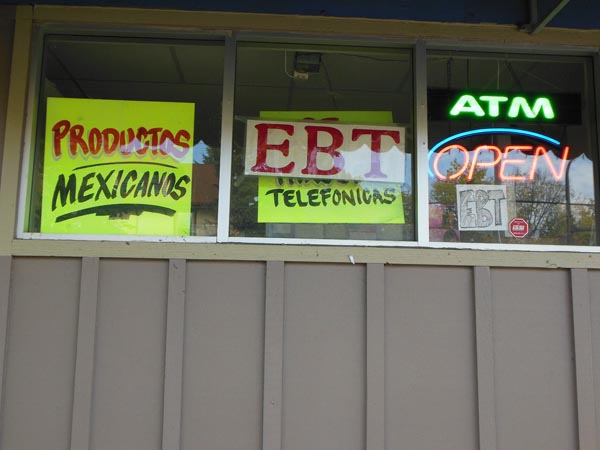Why Immigrants in California Are Canceling Their Food Stamps
Greg Kaufmann, The Nation, March 17, 2017

{snip}
As the Trump era unfolds in California, fear of an Immigration and Customs Enforcement crackdown is disrupting the daily lives of immigrants and their families. In a state with 5.4 million noncitizen residents — and where nearly half of all children have at least one immigrant parent — the president’s promise to increase deportations may already be affecting the health and livelihoods of families, even those here legally, by discouraging them from turning to public-assistance programs or from working.
At the Alameda County Community Food Bank in the San Francisco Bay area, 40 families recently requested that their food stamps be canceled, according to Liz Gomez, ACCFB’s associate director of client services. Another 54 Spanish-speaking households that pre-qualified for the Supplemental Nutrition Assistance Program turned down the opportunity to apply. Gomez says that the combination of a leaked draft executive order suggesting that legal immigrants could be deported for turning to public assistance within their first five years of arrival, as well as local ICE sweeps — and stories about raids and arrests elsewhere — are making immigrants afraid to give their information to service providers.
ACCFB has one of the largest SNAP outreach programs among food banks nationwide. It also provides enough food for 580,000 meals each week through food pantries, soup kitchens, childcare centers, senior centers, after-school programs, and other community-based organizations.
“We are concerned that some people are hesitant to visit a food pantry out of fear that ICE could show up,” said Gomez.
Indeed, Heidi McHugh, community education and outreach coordinator at Food for People in Humboldt County, says they have seen a decline in Latino clients at some sites. The organization runs 14 community food programs, including meals for seniors, food pantries, school-meal programs, and a mobile produce pantry that travels throughout the county to distribute vegetables. This month, when it stopped in a community that historically turns out 20 or 30 Latino households, only five Latino households showed up.
{snip}
Qualifying for Medicaid, SNAP, or WIC can’t currently be used as legal cause for deportation or denying someone citizenship. But people are still afraid, Gomez said, even immigrants with legal status. Given the leaked draft executive order, providing personal information feels risky, at best. “They fear it will be shared,” said Gomez. “But it’s important for people to know that information like immigration status is not collected by pantries or meal programs — they’re simply there to help people who need food.”
About 45 percent of immigrant-headed families with children use food-assistance programs. While undocumented immigrants are not eligible for food stamps, many families include children who are US citizens, and parents may apply on their behalf.
{snip}
Given recent ICE activity around the country, it’s not hard to see why immigrants might worry about the risks of using social support programs.
{snip}















